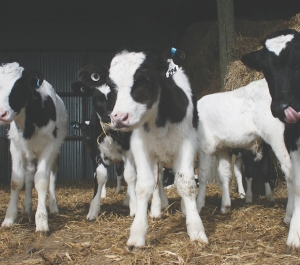“The only way I could see a diagnostic test working is if it was done on the supplying farm before any money, or calves, changes hands. Otherwise it becomes very messy,” Schouten told Rural News.
The Dairy News column, by Rotorua-based rearer Trish Hosking, relays how a switch to buying direct from farm instead of through saleyards worked well initially for her this year, but came unstuck with a couple of batches of later bought beef-cross calves. Blood tests for immunoglobulins indicated inadequate colostrum intake, despite assurances from suppliers to the contrary.
“My suggestion to rearers is, if calves fail to thrive, get blood samples done,” Hosking wrote.
Schouten believes such tests have a place but ideally they should be prior to sale to prevent problems arising, rather than as a dispute resolution tool. Used prior to sale they could form part of a wider warranty or “signature class” for calves. Suppliers offering such an assurance should be able to command a modest premium in return.
The concept is something Schouten has been advocating for years, but to date, has failed to gain traction.
“The problem is the vendors just don’t care.”
In general, stock agents and saleyards have similarly failed to grasp the nettle on improving the quality of calf offered to rearers, he claims.
Other warranty requirements for “signature class” calves might be birth to a rotavirus vaccinated cow; hence the calf should be immune to the most common killer and freedom from other ailments such as navel infection.
Some leading rearers already have such arrangements with suppliers, though few are formalised in written contracts, says Schouten, who’s even heard of rearers providing rotavirus vaccine to dairy farmers to ensure the bull calves they’ll subsequently buy are protected.
“It’s a win-win for everybody,” says Schouten.
The rearer gets immune bull calves, while the supplier’s replacement heifers are also protected at the rearers’ cost, he explains.
Other good examples of best practice relationships are the contractual requirements to supply bull calves to some meat company schemes, or dairy heifers for export, he notes.
“These people are starting to understand each other.”
However, many bull calf vendors still don’t care about the quality of stock they sell and rearers who haven’t built relationships with reliable suppliers should take a “buyer beware” approach, Schouten says.
Equally though, some rearers need to take more responsibility for their own situation, as many repeatedly seek to blame disease outbreaks on external factors when in fact the main cause may be much closer to home.
“They all seem to think that because they’ve done their utmost, it’s not their fault.”
One measure more rearers would do well to adopt is vaccination on arrival for salmonella, or better still, when the calf leaves the supplying farm.
“By the time you wake-up to the fact you’ve got a salmonella outbreak you’ve lost 30% of your calves.”

















